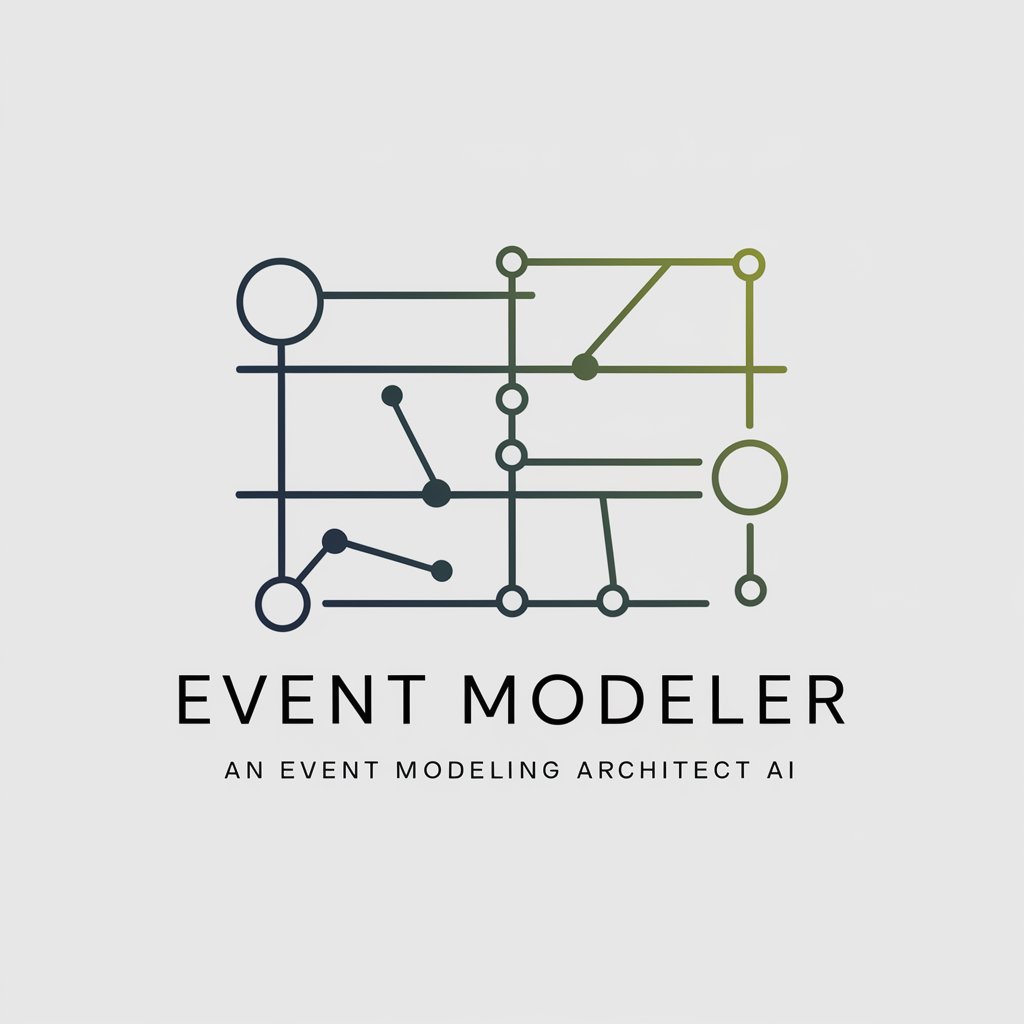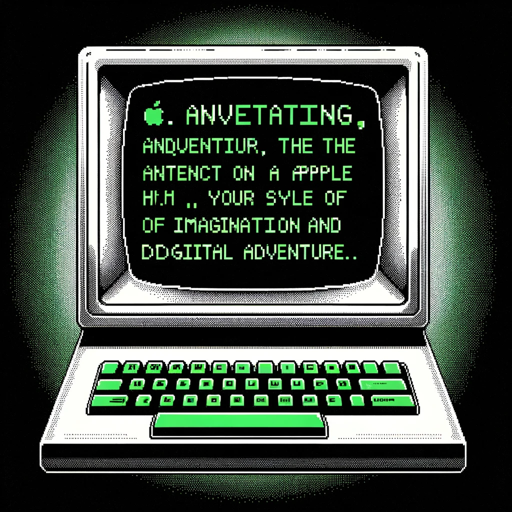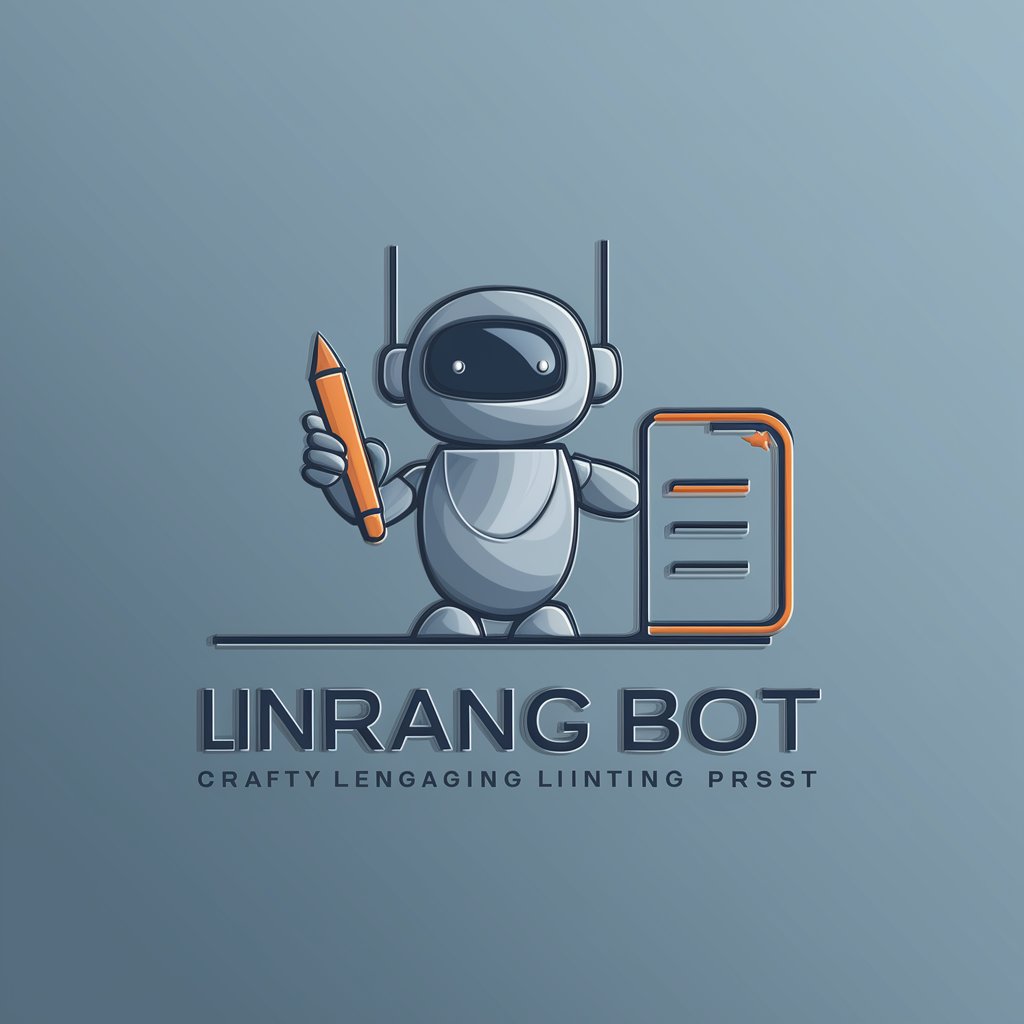Event Modeler - Event Modeling Tool

Welcome! Let's model your event or system step by step.
Design systems with AI-powered event modeling.
Describe the steps involved in modeling an e-commerce checkout process.
Explain the state changes when a user updates their profile information.
Outline the events needed to track an inventory management system.
Detail the view and state changes for a ticket booking system.
Get Embed Code
Understanding Event Modeler
Event Modeler is designed as a specialized tool for describing and modeling systems and processes through detailed steps, focusing on the events that change or represent the state of a system. It employs an event-driven architecture approach to outline how systems behave in response to various inputs or actions. Through its methodology, Event Modeler provides a clear, traceable, and systematic way to visualize and understand the flow of information and state changes within a system. An example scenario could involve modeling the process of a customer placing an order on an e-commerce platform. In this case, Event Modeler would detail the steps from order placement, through payment processing, to order fulfillment and delivery, each step marked by a state change (e.g., 'OrderPlaced', 'PaymentProcessed', 'OrderFulfilled') or a view into the system's current state (e.g., viewing the current order status). Powered by ChatGPT-4o。

Core Functions of Event Modeler
State Change Modeling
Example
When a user places an order, Event Modeler would model this as a 'PlaceOrder' command, leading to an 'OrderPlaced' event, detailing the item, quantity, and customer information.
Scenario
In an online shopping system, this function allows the tracking of each step in the order process, ensuring the system's state is accurately updated and traceable through each customer interaction.
State View Modeling
Example
A screen showing a customer's current order status, populated by a read model that aggregates events like 'OrderPlaced', 'PaymentProcessed', and 'OrderShipped'.
Scenario
This enables customers and administrators to view the real-time status of orders, facilitating better customer service and operational oversight.
Event-Driven Testing
Example
Given past events of 'OrderPlaced' and 'PaymentProcessed', when 'ShipOrder' is commanded, then an 'OrderShipped' event is expected.
Scenario
This testing approach helps in verifying that the system behaves as expected under various conditions, ensuring reliability and correctness of the event-driven processes.
Who Benefits from Event Modeler?
System Architects and Developers
Those involved in designing and building complex software systems, particularly those based on microservices or event-driven architectures, will find Event Modeler invaluable for planning, documenting, and testing system behavior in response to events.
Business Analysts and Product Managers
Individuals responsible for understanding and documenting business processes can use Event Modeler to translate requirements into clear, actionable system events and states, facilitating communication between technical and non-technical stakeholders.
Quality Assurance Professionals
QA teams can leverage Event Modeler to create detailed test plans based on the event-driven models, allowing for thorough testing of all system states and transitions, ensuring the software meets all business requirements.

How to Use Event Modeler
Start with a Free Trial
Visit yeschat.ai to access Event Modeler for a free trial, no sign-up or ChatGPT Plus subscription required.
Define Your Event Model
Identify the process or system you wish to model. Clearly outline the events, commands, and views that constitute this model.
Input Example Data
For each part of your model, input realistic example data. This ensures the model accurately reflects potential real-world applications.
Analyze and Refine
Use Event Modeler to analyze the flow and interaction between events, commands, and views. Refine based on insights gained.
Iterate and Expand
Expand your model iteratively, adding complexity and new scenarios over time. Utilize feedback loops for continuous improvement.
Try other advanced and practical GPTs
Smart Manoj AI
Empowering Tech Insights with AI

கவிஞர் கண்ணதாசன் AI
Reviving Tamil Wisdom with AI

The Rick Rubin Experience
Unleash Your Artistic Potential with AI

沖縄おGPT
Bridging Cultures with AI

TetugaQ
Explore Philosophy with AI-Powered Insights

Text Odyssey
Craft Your Story with AI

アートバディ
Empowering your artistic journey with AI.

The Menu Prompt Template - AI Tinkerers' Club
Elevate Your LinkedIn Presence with AI

Virtuaalinen Yhteisömanagerin assistentti
Empowering Community Managers with AI

禁煙センセイChatbot
AI-powered Quit Smoking Companion

Unpredictable Tale Spinner
Crafting Endless Tales with AI

Funnier Grok - Wit Master
Elevate your day with AI-powered humor.

Frequently Asked Questions about Event Modeler
What is Event Modeler?
Event Modeler is a tool designed to architect and visualize complex systems through event sourcing, focusing on the interactions between state changes and views within a system, using detailed example data for accuracy.
Who can benefit from using Event Modeler?
Developers, systems architects, and project managers involved in designing and implementing event-sourced systems can benefit, as it helps in understanding and communicating the flow of events within a system.
Can Event Modeler handle complex systems?
Yes, Event Modeler is designed to model complex systems with multiple interdependent events and processes, providing a clear visualization of the system's behavior over time.
How does Event Modeler improve project outcomes?
By providing a detailed and accurate model of system events and interactions, Event Modeler helps teams identify potential issues early, optimize processes, and ensure a shared understanding among stakeholders.
Is prior experience in event sourcing necessary to use Event Modeler?
While prior experience with event sourcing can be beneficial, Event Modeler is designed to be accessible to users with varying levels of expertise, offering guidance and example data to facilitate learning.
